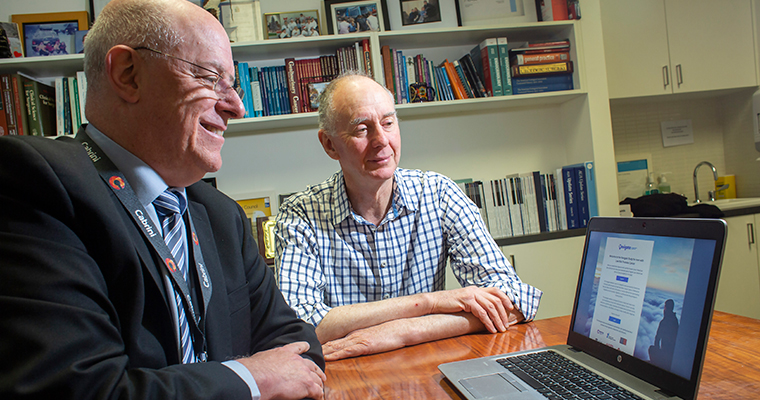Cabrini trials new program to help men Navigate prostate cancer
28/08/2019

Every year for 11 years David Hawe has booked himself into his GP for a regular check-up, using his February birthday as a reminder.
It became the annual doctor’s visit, one which he vowed to do after turning 50.
But after noticing a steady rise in his Prostate Specific Antigen (PSA) levels, last year’s annual check-up turned into a steady stream of specialist appointments.
“The results of a previous PSA had been about four and they had jumped to eight. It had been climbing slowly and the limits change with age, but this was just a bit high,” Mr Hawe said.
In April 2018, the 62-year-old was referred to Cabrini urologist Professor Mark Frydenberg for further investigation.
Prof Frydenberg arranged a number of tests and as a result of that, an MRI and transperineal biopsy confirmed it was cancer.
Luckily for Mr Hawe, an early diagnosis of prostate cancer has meant his world hasn’t be turned upside down.
“I felt fine. There’s still nothing really wrong with me,” he said.
“I don’t think about it really.
“At least I know I’ve got it and its very early days.”
Because Mr Hawe’s cancer wasn’t aggressive, it was recommended he use active surveillance as a treatment option, which meant he qualified to take part in a new trial called Navigate.
Navigate is an online decision aid resource for men diagnosed with low-risk prostate cancer.
Cabrini has teamed up with Peter MacCallum Cancer Centre and Swinburne University as one of the trial sites for Navigate, which was designed by men to help men make more informed decisions about their management options for prostate cancer.
Prof Frydenberg said Navigate provided reassurance to men and helped keep them informed of their options.
He said the website provided information about prostate cancer including management options, side effects, and ways to keep healthy after diagnosis.
“It’s really important for men to have a good understanding of all their options,” Prof Frydenberg said.
“Prostate cancer is different – you really need a good, educational program explaining the options. Really, there’s no downside to being involved. It’s an online education tool to explain the biological differences.”
Prof Frydenberg said the website’s main use was to provide men with enough information about all management options in low risk prostate cancer including no treatment initially, which still had excellent 10-15 year life expectancies.
Mr Hawe said he would encourage all men with low-risk prostate cancer to get involved in Navigate.
“I’m a firm believer in committing to these things, if you can get enough statistics/data it can solve a lot of problems. I’m happy to be part of it.”
Men are able to self-refer to the trial or can be referred from participating hospitals or directly from their clinicians from anywhere within across Australia.
For more information visit https://navigateprostate.com.au/auth/index
For more information visit Cabrini’s cancer services.